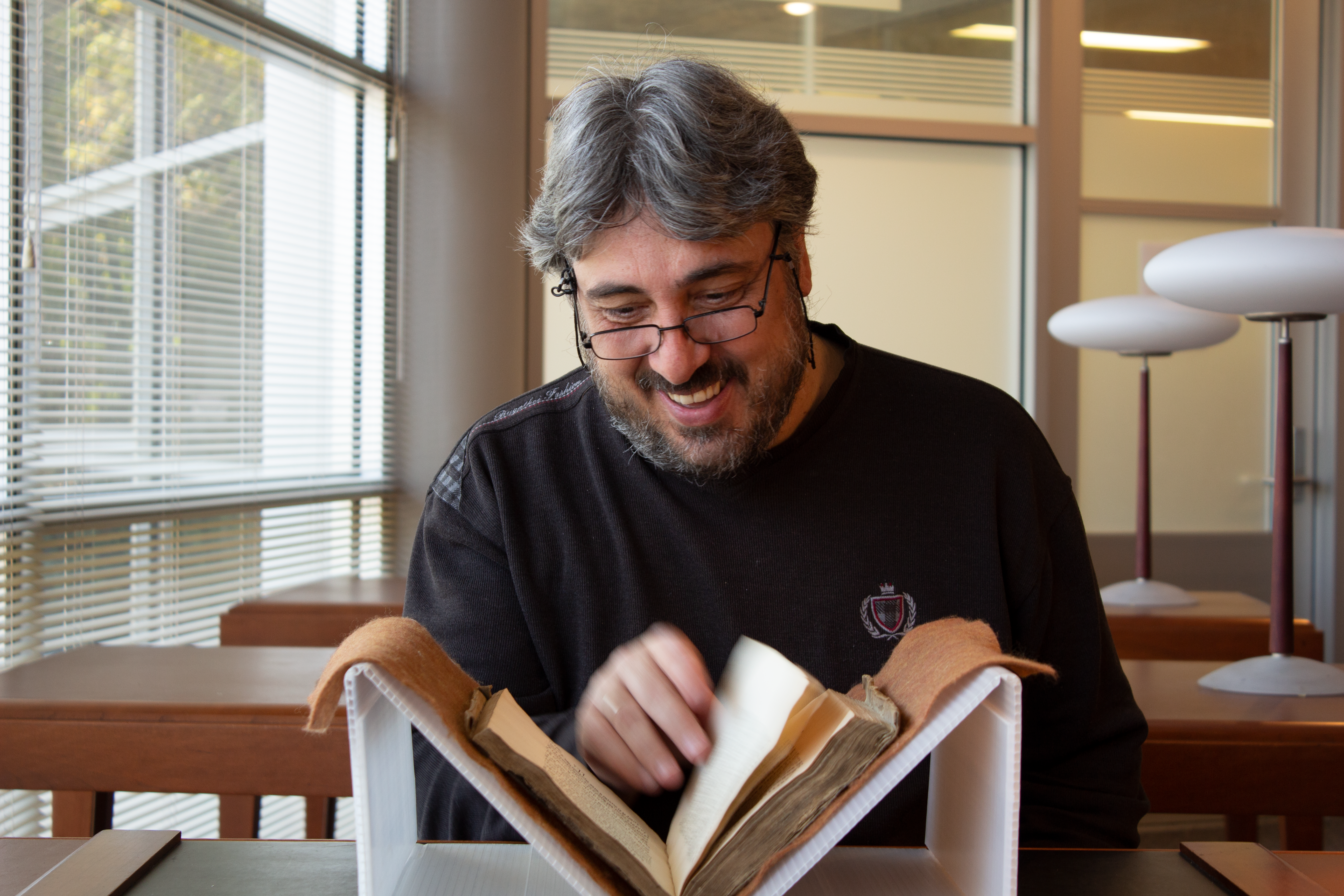Senior Robbins Research Fellow Dimitris Stamatopoulos arrived at Berkeley Law in April 2022 to begin his fellowship. Stamatopoulos is a Professor of Balkan and Late Ottoman History at the University of Macedonia in Thessaloniki, Greece. He will focus his time at the Robbins Collection on his monograph elucidating the powerful position of national Orthodox Churches in the Balkans in the 18th through 20th centuries. Professor Stamatopoulos’s research suggests that these national churches remained powerful after the collapse of the Byzantine Empire and the fragmentation of the Patriarch of Constantinople’s flock, due to the legacy of the Byzantine Empire of church attachment to the state. This tradition continued into the Ottoman Empire period, as early sultans gave religious authorities the right to control the private life of their flock through the administration of justice in ecclesiastical courts. This meant that the Patriarchate of the Orthodox Church remained involved in issues of marriage and divorce, among other personal aspects of people’s lives, long into the modern era.

The Robbins Collection’s Hexabiblos was largely responsible for bringing Professor Stamatopoulos to Berkeley. It is an important example of how the Orthodox Church retained control over the private domain of its followers. Compiled in 1345 by Konstantinos Armenopoulos, a Byzantine jurist, the Hexabiblos served as the substitute for a civil code in Greece beginning in the 1830s, when the country gained its independence from the Ottoman Empire. It wasn’t until 1945 when the Hexabiblos was replaced by a new civil code. What explains the use of a 600 year old legal compilation in a 20th century modern state? The Orthodox Church resisted attempts to introduce modern civil codes since they feared losing the political and social power they had been granted. Much like in Greece, the Orthodox clergy fought many successful battles elsewhere in the Balkans to maintain spheres of private life and education under their control, “because they had a particular means of attaching themselves to each state,” explains Professor Stamatopoulos.
In addition to our unique holdings, it was the breadth of the Robbins Collections library and our support for comparative law research which drew Professor Stamatopoulos to Berkeley. “The Robbins Collection Research Fellowship offers me the opportunity to take a comparative approach on the history of Hexabiblos in relation to the evolution of Latin-Catholic Canon and Islamic law, especially the evolution of the latter in the Ottoman Empire since the beginning of the 18th century,” he said. “My research project will trace possible influences between the way the Shari’a courts distributed justice regarding family law and the flexibility of the ecclesiastical courts to manage similar issues. Sometimes we can observe direct influences of Islamic law, like the cases of temporal marriage (kepinion, in Greek), or temporal separation of a couple before a judge decides to finally grant a divorce.”
Professor Stamatopoulos is the author of Imagined Empires: Tracing Imperial Nationalism in Eastern and Southeastern Europe (2021) and Byzantium after the Nation: The Problem of Continuity in Balkan Historiographies (2022), both published by Central European University Press.